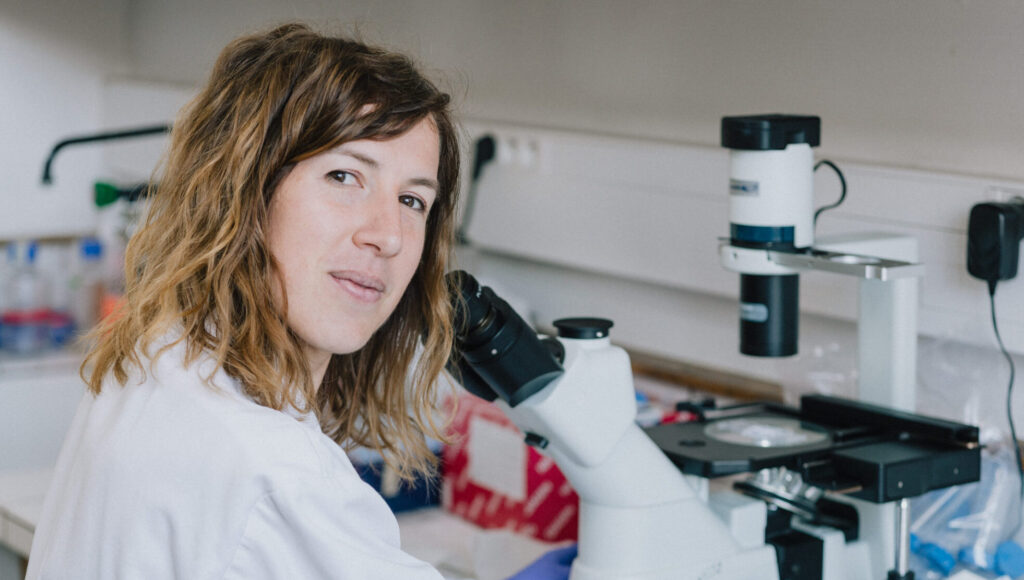Profile of Valeria Bisio, Research Officer in the “Chemokines, Lymphoid Niches, and Immunopathology” team led by Karl Balabanian and Marion Espeli

Her background
Dr. Valeria Bisio began her scientific career with a Ph.D. at the University of Padua (Italy), focused on pediatric acute myeloid leukemia (AML).
During her first postdoctoral fellowship in a biotechnology company, she developed 3D models to evaluate new therapies for pediatric AML.
She then completed a second postdoctoral fellowship at the Saint-Louis Research Institute (Paris, France), joining INSERM U1160 and the “Chemokines, Lymphoid Niches, and Immunopathology” team led by Drs. Balabanian and Espéli, renowned for their work on the bone marrow (BM) ecosystem.
Under the supervision of Dr. Dulphy and in collaboration with the Senior Hematology Department at Saint-Louis Hospital (Professors Adès and Fenaux), she studied how defects in Natural Killer (NK) cells contribute to myelodysplastic syndromes (MDS) and their progression to secondary AML.
In particular, she focused on the interactions between immune cells and the leukemic BM microenvironment.
With support from the Fondation de France, she developed a 3D model of artificial BM organoids to explore interactions between mesenchymal stromal cells (MSCs) and hematopoietic cells in MDS.
This work, supported by the IHU THEMA 1 project (AAP 2022, coord. Dr. Balabanian), revealed that MSCs play a key role in NK cell dysregulation.
These findings highlighted the critical role of cellular interactions in MDS, guiding her current research.
Recruited as a CRCN researcher at INSERM in September 2024, she launched a program aimed at restoring NK cell function by targeting the tumor microenvironment to improve therapies for hematological cancers.
Her research focus areas
How do defects in Natural Killer (NK) immune cells contribute to myelodysplastic syndromes and their progression to secondary acute myeloid leukemia?
What are the interactions between immune cells and the leukemic bone marrow microenvironment?
Could NK cell function be restored by targeting the microenvironment to improve therapy effectiveness?
